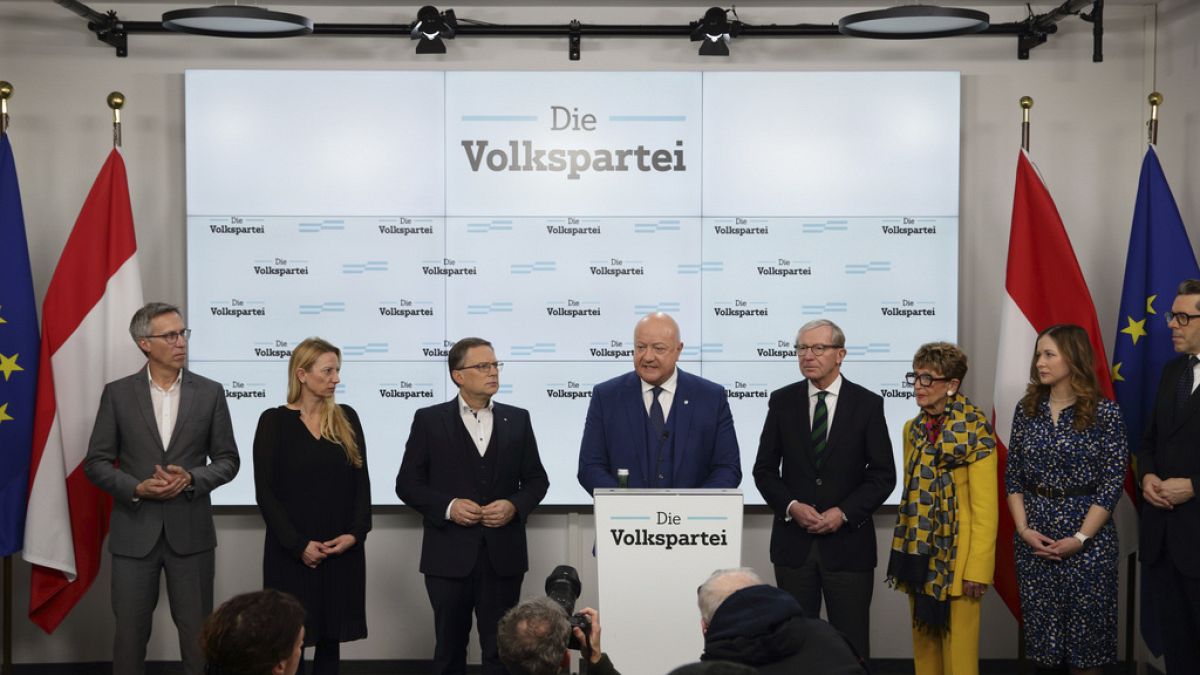For Austria, the political situation is unprecedented, as coalition formation talks have never taken this long.
After nearly five months of an impasse, three of Austria’s biggest centrist parties in parliament on Saturday hinted they were on the verge of agreeing to form a coalition government.
The move, if finalised, will bring together the conservative Austria’s People’s Party (OVP), Social Democrats (SPO) and liberal Neos and sideline the far-right Freedom Party (FPÖ), which won the September national election with nearly 29 per cent of votes.
According to a statement, OVP leader Christian Stocker said he was confident the coalition would be finalised.
“I am very confident that in the common ground that we have found, we will manage to finalise a coalition government agreement,” the statement said.
On Wednesday, 12 February, far-right leader Herbert Kickl announced his efforts to form a coalition government with a conservative party had collapsed after mutual recriminations—the second time talks to form a coalition failed.
Negotiations had first collapsed in January, leading to the resignation of Chancellor Karl Nehammer from the conservative People’s Party and making way for interim Chancellor Alexander Schallenberg.
Kickl was then tasked by President Alexander Van der Bellen to form a new government after other parties’ efforts to put together a governing alliance without his Freedom Party failed.
However, weeks of tense talks with the conservative Austrian People’s Party hit a brick wall.
In a letter to the president released by his FPO party, Kickl said the parties failed to agree on clearing up disputed policy points or how to share the work of various ministries.
“I do not take this step without regret,” the far-right leader said. He stressed that there appeared to be no point in trying to negotiate with the centre-left Social Democrats, the only other party with which the Freedom Party could reach a parliamentary majority.
Kickl called for fresh elections, saying “Austria has no time to waste”.
For Austria, the political situation is unprecedented, as government formation talks have never taken this long. Additionally, the country faces a declining economy, rising unemployment, and a continuing recession, making the establishment of a stable government crucial.
Kickl’s anti-immigration party, which opposes the EU’s support for Ukraine and sanctions against Russia, won Austria’s parliamentary election in September with 28.8 per cent of votes, beating the then-Chancellor Karl Nehammer’s People’s Party into second place.
But in October, Van der Bellen gave Nehammer the first chance to form a new government after Nehammer’s party said it wouldn’t go into government with the Freedom Party under Kickl. Other parties had also refused to work with the Freedom Party at all.
The mandate given to Kickl in January to form a government was the first to have been headed by the far right since World War II.
Checkout latest world news below links :
World News || Latest News || U.S. News
The post Austria’s parties inch close to new coalition without far-right FPÖ appeared first on WorldNewsEra.

